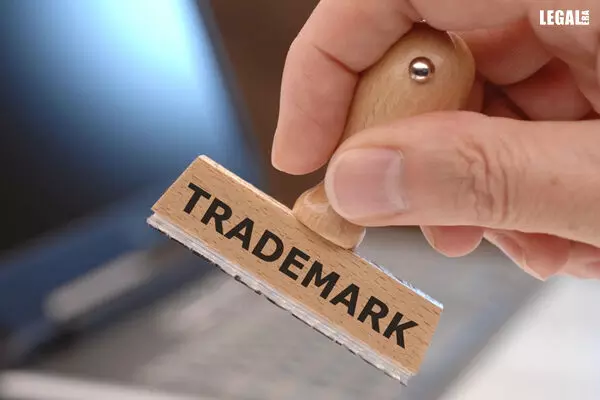- Home
- News
- Articles+
- Aerospace
- Artificial Intelligence
- Agriculture
- Alternate Dispute Resolution
- Arbitration & Mediation
- Banking and Finance
- Bankruptcy
- Book Review
- Bribery & Corruption
- Commercial Litigation
- Competition Law
- Conference Reports
- Consumer Products
- Contract
- Corporate Governance
- Corporate Law
- Covid-19
- Cryptocurrency
- Cybersecurity
- Data Protection
- Defence
- Digital Economy
- E-commerce
- Employment Law
- Energy and Natural Resources
- Entertainment and Sports Law
- Environmental Law
- Environmental, Social, and Governance
- Foreign Direct Investment
- Food and Beverage
- Gaming
- Health Care
- IBC Diaries
- In Focus
- Inclusion & Diversity
- Insurance Law
- Intellectual Property
- International Law
- IP & Tech Era
- Know the Law
- Labour Laws
- Law & Policy and Regulation
- Litigation
- Litigation Funding
- Manufacturing
- Mergers & Acquisitions
- NFTs
- Privacy
- Private Equity
- Project Finance
- Real Estate
- Risk and Compliance
- Student Corner
- Take On Board
- Tax
- Technology Media and Telecom
- Tributes
- Viewpoint
- Zoom In
- Law Firms
- In-House
- Rankings
- E-Magazine
- Legal Era TV
- Events
- Middle East
- Africa
- News
- Articles
- Aerospace
- Artificial Intelligence
- Agriculture
- Alternate Dispute Resolution
- Arbitration & Mediation
- Banking and Finance
- Bankruptcy
- Book Review
- Bribery & Corruption
- Commercial Litigation
- Competition Law
- Conference Reports
- Consumer Products
- Contract
- Corporate Governance
- Corporate Law
- Covid-19
- Cryptocurrency
- Cybersecurity
- Data Protection
- Defence
- Digital Economy
- E-commerce
- Employment Law
- Energy and Natural Resources
- Entertainment and Sports Law
- Environmental Law
- Environmental, Social, and Governance
- Foreign Direct Investment
- Food and Beverage
- Gaming
- Health Care
- IBC Diaries
- In Focus
- Inclusion & Diversity
- Insurance Law
- Intellectual Property
- International Law
- IP & Tech Era
- Know the Law
- Labour Laws
- Law & Policy and Regulation
- Litigation
- Litigation Funding
- Manufacturing
- Mergers & Acquisitions
- NFTs
- Privacy
- Private Equity
- Project Finance
- Real Estate
- Risk and Compliance
- Student Corner
- Take On Board
- Tax
- Technology Media and Telecom
- Tributes
- Viewpoint
- Zoom In
- Law Firms
- In-House
- Rankings
- E-Magazine
- Legal Era TV
- Events
- Middle East
- Africa
Common Names Can Be Trademarks, But With Limits: Delhi High Court

Common Names Can Be Trademarks, But With Limits: Delhi High Court
The Delhi High Court has ruled that common Indian names like "NEHA" can be registered and protected as trademarks if they have acquired distinctiveness through long-standing commercial use.
The Delhi High Court, presided over by Justice Sanjeev Narula held that while common names like "NEHA" can function as trademarks, they cannot be monopolized across unrelated product segments, even within the same trademark class. The dispute is centred on the competing rights of Neha Herbals which claimed usage of the mark “NEHA” since 1992 for mehendi and herbal products Moreover, the Court ruled that the mark "NEHA" is inherently weaker in terms of source identification due to its popularity as a forename in India and that the proprietor must demonstrate secondary meaning to claim protection.
In contrast, Sahni Cosmetics, which claimed prior adoption of the mark for face creams dating back to 1990, failed to substantiate its claims with credible evidence. The Court emphasized that trademark rights accrue through tangible trading and commercial activities and that claims of secondary meaning must be supported by objective evidence, such as length and continuity of use, sales volume and advertising expenditures.
The Court ultimately found that Sahni's use of "NEHA" for creams was not likely to cause confusion with defendants' use of the same mark for mehendi products. Furthermore, “Goodwill is not a blanket right,” the Court stated, “It is inherently product-specific and context-bound.”
In this case the plaintiff was represented by Mr. MK Miglani, Mr. Hardik Gogia and Mr. Akash Singh, Advocates. Meanwhile the defendant was represented by Mr. Sachin Gupta, Mr. Adarsh Agarwal, Mr. Rohit Pradhan and Mr. Prashansa Singh, Advocates.



